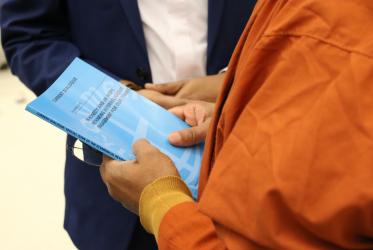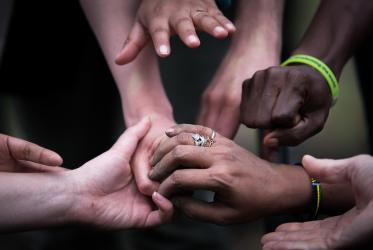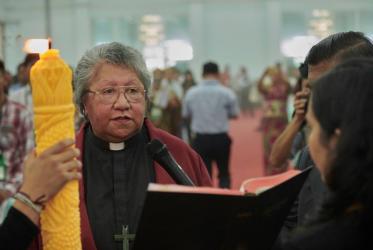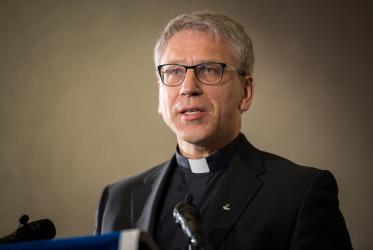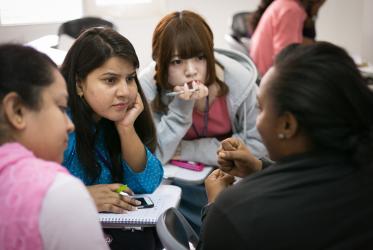Displaying 1 - 20 of 48
Festivities and dialogue launch new WCC journal
07 February 2020
Peacemakers at work in Sri Lanka
29 April 2019
Peace is common denominator of all major religions
05 March 2019
Human fraternity is a divine calling, says WCC general secretary
03 February 2019
A moment in ‘Time’: an interreligious vision in Erlangen
20 December 2018
"Diversity" documentary reflects on maze of self-identity in Canada
27 September 2018
Pope Francis at the World Council of Churches
31 May 2018
WCC delegation visits China
04 January 2018
Tveit: “We are called to embrace the gifts of the others”
07 November 2017
WCC students study what makes a peace communicator
18 July 2017


